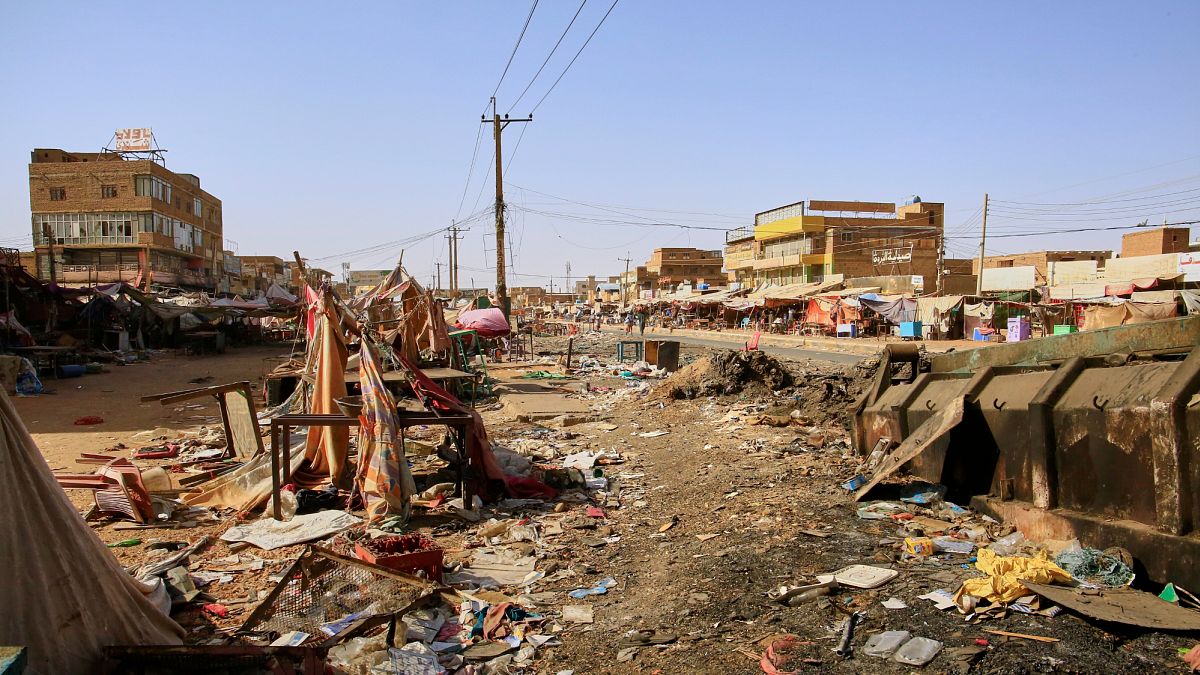Global diplomats and aid officials have met in London to push for greater humanitarian efforts to try to help those affected by Sudan’s two-year civil war.
The conflict has killed tens of thousands, displaced 12.6 million according to the UN, and caused famine across large parts of the country.
The African Union co-hosted the one-day conference with the UK, France, Germany and the European Union.
They called for an “immediate cessation of hostilities,” but UK Foreign Secretary David Lammy said peace would take time, more international effort, and “patient diplomacy.”
The main goal of the conference was not to negotiate peace, but to respond to what the United Nations has called the world’s worst humanitarian crisis.
Representatives from Western countries, international organisations and neighbouring countries attended the event, but no one from Sudan was present.
Neither the Sudanese military nor the rival Rapid Support Forces (RSF) paramilitary group was invited.
Lammy told the delegates that “many have given up on Sudan,” suggesting that the conflict is likely to continue. He said the biggest obstacle to peace was a “lack of political will.”
“We have got to persuade the warring parties to protect civilians, to let aid in and across the country and to put peace first,” Lammy said.
The war began on 15 April 2023, after tensions between Sudan’s military and the RSF spilled over into a power struggle.
Fighting started in the capital Khartoum and spread across the country, with at least 20,000 people killed, though the real number is likely much higher.
The Sudanese military retook Khartoum last month, which was seen as a key victory. However, the RSF still controls much of the western Darfur region and other areas.
The UN reported that over 300 civilians were killed in Darfur in recent fighting.
The war has caused famine in parts of Sudan and forced over 12.6 million people to flee their homes. More than three million have crossed into neighbouring countries like Chad and Egypt. Both sides of the war have been accused of war crimes.
The World Food Programme says that nearly 25 million people — half of Sudan’s population — are facing extreme hunger.
Oxfam has warned that the crisis could spread to neighbouring countries. In South Sudan, where there is also instability, the arrival of refugees from Sudan has put pressure on already limited resources and made local tensions worse.
Lammy, who visited the border between Sudan and Chad in January, stressed the need to stop the spread of instability.
“It drives migration from Sudan and the wider region, and a safe and stable Sudan is vital for our national security,” he said.
He added that the conference would aim to find a way to end the suffering, but the UK and other Western countries have limited power to stop the fighting.
Sudan’s government criticised the conference for excluding it while inviting the United Arab Emirates, which has been accused of supporting the RSF.
The UAE has denied those claims.
Lana Nusseibeh, the UAE’s Assistant Minister for Political Affairs, said both sides were committing atrocities. She called on them to stop targeting humanitarian workers and to agree to a ceasefire.
The United States, which has cut most of its foreign aid, was also expected to attend the conference.
Before the meeting, Lammy announced €140 million in funding to provide food for 650,000 people in Sudan over the next year, as part of the UK’s foreign aid budget.
In February, the UK reduced its aid spending from 0.5% to 0.3% of GDP to increase military spending.
However, Prime Minister Keir Starmer has said that Sudan, along with Ukraine and Gaza, will remain a priority for British aid.

